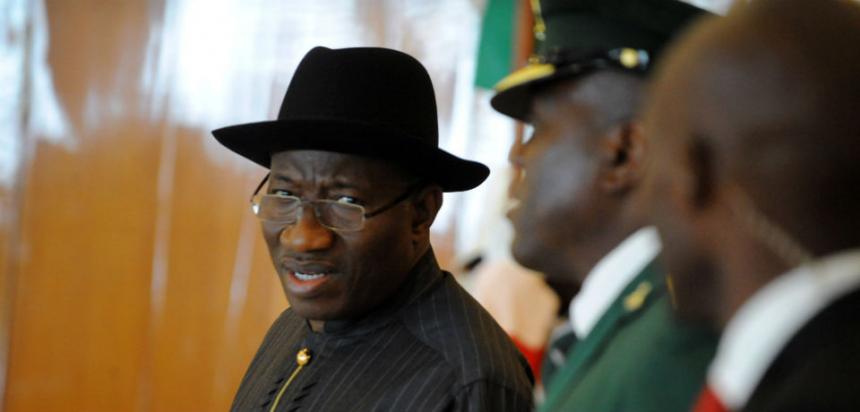The travails of President Goodluck Jonathan as he faces a long train of acts of Boko Haram insurgency, insecurity, a state of flux and an ardent political opposition are, indeed, extraordinary in the life of a leader. They are truly unprecedented in the life of the nation because in our post-independence history we have never been confronted with such a frightening set of crises as we have at the moment.
The tragic Civil War of 1967-70 did not stress us this much. Nor did the political turbulence of the old Western Nigeria that led to Wetie cause as much political and social damage to the polity. The isolated challenges in the Second Republic to wit, the impeachment of Governor Balarabe Musa of old Kaduna State as well as the faux pas of the electoral umpire in announcing Akin Omoboriowo as the winner of the governorship contest in the defunct Ondo State instead of incumbent Governor Adekunle Ajasin, leading to the outbreak of violence, all pale before the upheavals of today.
Most students of these developments who have given considerable amount of time and serious study to examine them conclude that the nation overcame those challenges largely on account of the style and approach of the leader and government of the day. Of course, they do not by this assertion dismiss the contribution of other stakeholders, such as the media, opposition, civil society organisations, labour, etc.
Simply, what they mean is that it was the positive and constructive reaction of the leader and government to the crisis that determined the trajectory of the crisis. It was also the response of the sitting government and its head to comments on the actions from the opposition or critics that dictated the turn of events during the crisis.
Now, if we relate this logic to what Nigeria is going through today we come to two conclusions. First, Jonathan, if he is allowed space, holds the key to the resolution of the political and insecurity challenges we are experiencing. Secondly, all the citizens of this country owe it as a sacred and patriotic responsibility to their motherland, their conscience and posterity to pursue only goals that would align them with the efforts of government in the war against insurgency and crime. The government needs the space to operate through the support we give it. In other words, politics that tends to relegate patriotism and uplift partisanship should not be tolerated while the engagement with the forces warring against the nation lasts.
I recall that in the United States, the early years of the first term of President Barack Obama witnessed a similar conundrum when critics taunted the American leader over his policies and the seemingly futile search for Osama bin Laden.
There were claims that Obama was a secret Muslim; it was said he wasn’t who he claimed to be; others dismissed his foreign policies as incoherent; the critics argued that Obama was indecisive; and finally as it has been said of Jonathan, the American politicians said Obama’s policies were “muscled through by a coterie of female policy advisers who were tougher than he was.”
Yet this so called “indecisive” leader went ahead to make history: he nailed the elusive Osama bin Laden and the following year was reelected. Actually, we can claim he remade history after the first historic step of becoming the first black American to occupy the White House.
The lesson to learn here in Nigeria is that Obama saw himself as the key to resolving the bin Laden riddle. The self-serving and vociferous and unproductive criticism from a few was not the key. Jonathan must not be moved into taking hasty decisions based on the provocative outbursts of those who cannot think beyond today and 2015, just as Obama refused to be deterred by the criticism of some American politicians. Let him work quietly behind the scenes as Obama did and delivered good results. Let him rule strictly on his convictions that he is serving God and country. He will fail if he shifts his focus from governance to responding to the clueless attacks of the opposition. He must be supported as the key to solving our challenges. Venomous assault on the man is not the solution.
It is his hardly celebrated thoroughness and admirable trait of self-restraint that have so far taken the country away from the brink the opposition is pushing it to. We have seen this in his handling of Boko Haram and Chibok abduction. He has been firm without being reckless with power as Commander-in-Chief, as some wanted him to do. Ditto with the economy. His era has led to renowned world economists concluding that “Nigeria is a place of investment.” His policies have created a conducive atmosphere to make a Nigerian the 25th richest man in the world. The railways are gradually working again after decades of neglect. The youths now embrace agriculture, which they used to touch with a long pole.
Now you can’t pooh-pooh these achievements as coming from a “clueless” leader!
– Adikuru, a teacher, writes from Lagos

